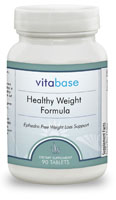| |
Ma Huang (ephedra) |
|
| Ma Huang (ephedra) is a genus of gymnosperm shrubs, the only genus in the family Ephedraceae and order Ephedrales. Ma Huang is native to northern China and Inner Mongolia. Ephedra is a jointed, barkless plant with branches that bear few leaves and tiny yellow-green flowers that bloom in summer. The ephedra plant is a perennial evergreen that stands, on average, one foot high but may grow up to four feet. Nearly leafless, the plant has slender, cylindrical, yellow-green branches and underground runners. The plant has tiny, scale-like, opposite leaves that only function briefly when first formed, after which they lose their chlorophyll and turn a faded brown. In August, the flowers bear poisonous, fleshy red cones resembling berries. Ma huang is also known as sea ephedrine, ephedra alkaloids, sea grape, yellow horse, yellow astringent, joint fir, squaw tea, Mormon tea, popotillo, and teamster's tea. |
| |
Active constituents of Ma Huang |
|
| Ephedra herb contains alkaloids including ephedrine, pseudophedrine, norephedrine, norpseudoephedrine, and methylephedrine. The plant also contains flavonoids, proanthocyanidins, tannins, and volatile oils. Ephedra's main active medical ingredients are the alkaloids ephedrine and pseudoephedrine. Ephedrine and pseudoephedrine are sympathomimetic alkaloids. The alkaloids stimulate alphaand beta-adrenergic receptors, causing the release of endogenous catecholamines at synapses in the brain and heart. Pseudoephedrine is most commonly recognized as the decongestant found in many over-the-counter cold medications. Ephedrine and pseudoephedrine stimulate the opening of air passages in the lungs and are used as decongestants for the short-term treatment of asthma, bronchitis, and certain allergic reactions. Ephedrine and pseudoephedrine are also used in dietary supplements that claim to promote weight loss and enhance athletic performance. |
| |
Medicinal uses and health benefits of Ma Huang |
|
|
Ma huang has been used in Traditional Chinese Medicine since 3000 B.C. to treat colds, asthma, and other upper-respiratory disorders. Ma Huang aids in weight loss, increases energy, sexual enhancement and produces euphoria. Ma huang stimulates the nervous system to enhance mood, reduce fatigue, and to make a person alert enough to smell their coffee in the morning. Ma huang can increase energy and endurance by increasing the blood flow to the muscles, resulting in an increase of oxygen and nutrient supply to the muscles. Ma huang has been used as a stimulant and for weight loss and appetite suppression, because ephedrine increases basal metabolic rate (BMR), and help body burn calories faster. Ephedra sinica, the primary species of ma huang, is used as a weight-loss aid in people because of its stimulant effect and as a decongestant because of its vasoconstrictive effect. Ephedra was used for many years as a treatment for asthma and chronic obstructive pulmonary disease in both children and adults. Ephedra dilates the respiratory system, it may also have applications in the treatment of asthma. Used primarily to treat asthma or bronchitis, ephedra is also prescribed for symptoms of cold and flu including nasal congestion, cough, fever, and chills. |
| |
Dosage and administration of Ma Huang |
|
| Ephedra is available in dried and liquid preparations. The dosage of ephedra is dependent on the brand name purchased. Most manufacturer's recommend consuming multiple tablets or capsules per day, providing a range between 150 – 4000 mg of ephedra per day. Ephedra should only be used on a short-term basis because prolonged use may lead to addiction. The German Commission E concluded in 1991 that single adult doses of ephedra should correspond to 15 to 30 mg of total ephedrine alkaloid. Used as infusion or decoction: 1.2 to 2.3 g of cut, dried ephedra herb containing 1.3% (13 mg/g) total alkaloids steeped in 1 cup freshly boiled water three times per day as needed for upper respiratory symptoms. When used in forms of capsules: 12 to 25 mg of total ephedrine alkaloid three times per day as needed for upper respiratory symptoms. |
| |
Side effects, precautions, interactions |
|
The FDA has recommended that consumers not take ma huang, because ma huang (ephedra) has been reported to cause serious, even fatal, side effects such as heart attack, stroke, irregular heartbeats, and sudden death. Ephedra may cause addiction, headache, insomnia, nervousness, agitation, dizziness, vomiting, difficult urination, manic episodes, kidney stones, hepatitis, high blood pressure, heart palpitations, tachycardia, heart attack, stroke and death. Ephedra may be life threatening if taken in very high dosages. Signs of poisoning by the herb include severe outbreaks of sweating, enlarged pupils, spasms and elevated body temperature, with heart failure and asphyxiation causing death. Ephedra can dangerously elevate blood pressure, increase chest pain, and interfere with heartbeat rhythm, rate and force. Ephedra may alter thyroid hormones and should be used cautiously with other herbs or supplements that affect thyroid hormones. Effects of cholesterol-lowering herbs and supplements may be altered by ephedra. |
|
|
|
|
 Healthy Weight Formula by Vitabase is designed to support a low-fat diet and exercise program. It contains no ephedra. Healthy Weight is one of the most complete diet and weight loss supplements available. Healthy Weight contains a full range of B vitamins including Niacin and Folic Acid. The B vitamins are key to producing energy from nutrients consumed, helping break down carbohydrates and metabolizing carbs as well as fat. Biotin is essential to the metabolism of carbohydrates and the synthesis of fatty acids. Click here for more information.
Healthy Weight Formula by Vitabase is designed to support a low-fat diet and exercise program. It contains no ephedra. Healthy Weight is one of the most complete diet and weight loss supplements available. Healthy Weight contains a full range of B vitamins including Niacin and Folic Acid. The B vitamins are key to producing energy from nutrients consumed, helping break down carbohydrates and metabolizing carbs as well as fat. Biotin is essential to the metabolism of carbohydrates and the synthesis of fatty acids. Click here for more information.